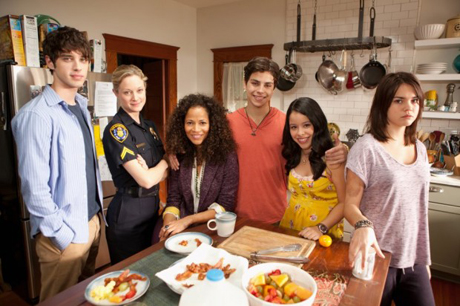I had high hopes for the new ABC Family cable show The Fosters when I saw the first promo. Produced by Jennifer Lopez, the new summer series highlights a new “non-traditional” family with foster children, and I was anxious to see how a foster family and the child welfare system would be portrayed on TV.
As CEO of Bill Wilson Center, I oversee a foster family agency that certifies foster parents and places children in these homes. Recruiting, screening, training and certifying foster parents is not an easy process. Add to this task the high cost of housing in Silicon Valley, and it becomes even more challenging. I hoped that a new television show portraying foster families in a positive way would be beneficial to foster children and prospective foster parents.
But, after watching a few episodes, and speaking with a couple of foster kids about it, I have mixed feelings about The Fosters. Based on the first two shows, my head was spinning trying to keep up with the various plots and drama. First, The Fosters refers to the family name in addition to the children they are raising. Second, the foster parents are a bi-racial lesbian couple raising a family made up of biological, adoptive and foster children. One parent is a police officer—who divorced her police partner husband and, along with her biological son, moved in with her new lesbian partner—and the other is a vice principal of a school that their four teenagers attend.
It seems too convenient that the other mom is vice principal at the kids’ school, the role that is usually in charge of school discipline. You can expect plenty of drama from this mom dealing with her fosterlings as part of her job.
While my head may be spinning from the show’s many plot lines, for some conservative “family-values” groups, the nontraditional lesbian parents are creating a firestorm of postings on the Internet. Personal reviews swing from a low of “zero” to a perfect “10,” as supporters and detractors face off trying to kill or save the show. It’s hard to find any reviews focusing on the foster-child theme.
To get a grounded perspective on the show, I spoke with a couple of foster youth after they had watched it. And—no surprise here—they love the show. One 16-year-old girl, who has been in foster care since age eight, said that one of her foster homes was headed by a lesbian couple, so that part of the show resonated with her.
Also, a storyline in the show about selling pills prescribed to treat ADHD at school was realistic to another foster youth. Although it is the show’s biological son who takes the medication, foster youth are more than twice as likely to be placed on medication for behavior than other youth.
There are some heart-tugging scenes with the foster children, but each episode is full of every possible issue that can come up in families—from substance abuse and stealing money to undocumented youth runaways, race issues, bullying, and on and on.
I guess it was too much to expect a Leave It To Beaver type television show featuring foster youth. I just hope The Fosters decide to let the two “temporary” kids stay with them. If not, maybe Bill Wilson Center can find some new foster parents for them.
Sparky Harlan, Executive Director/CEO at Bill Wilson Center, is a nationally recognized advocate for youth in foster care and in the juvenile justice system, as well as homeless and runaway youth.


The show does tackle a lot of issues, but does a good job of balancing drama with reality. Interesting to read a review that is looking at the show from a foster care perspective. One side note: It’s Jesus, their adopted (formerly foster) son, who has ADD – not Brandon the biological son.
Thanks for correcting my error on which son was taking the medication for ADD. Adopted children are also more likely to be diagnosed for Attention Deficit Disorder and on medication for it than biological children—another real life situation on the show!